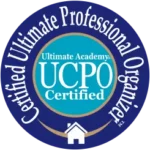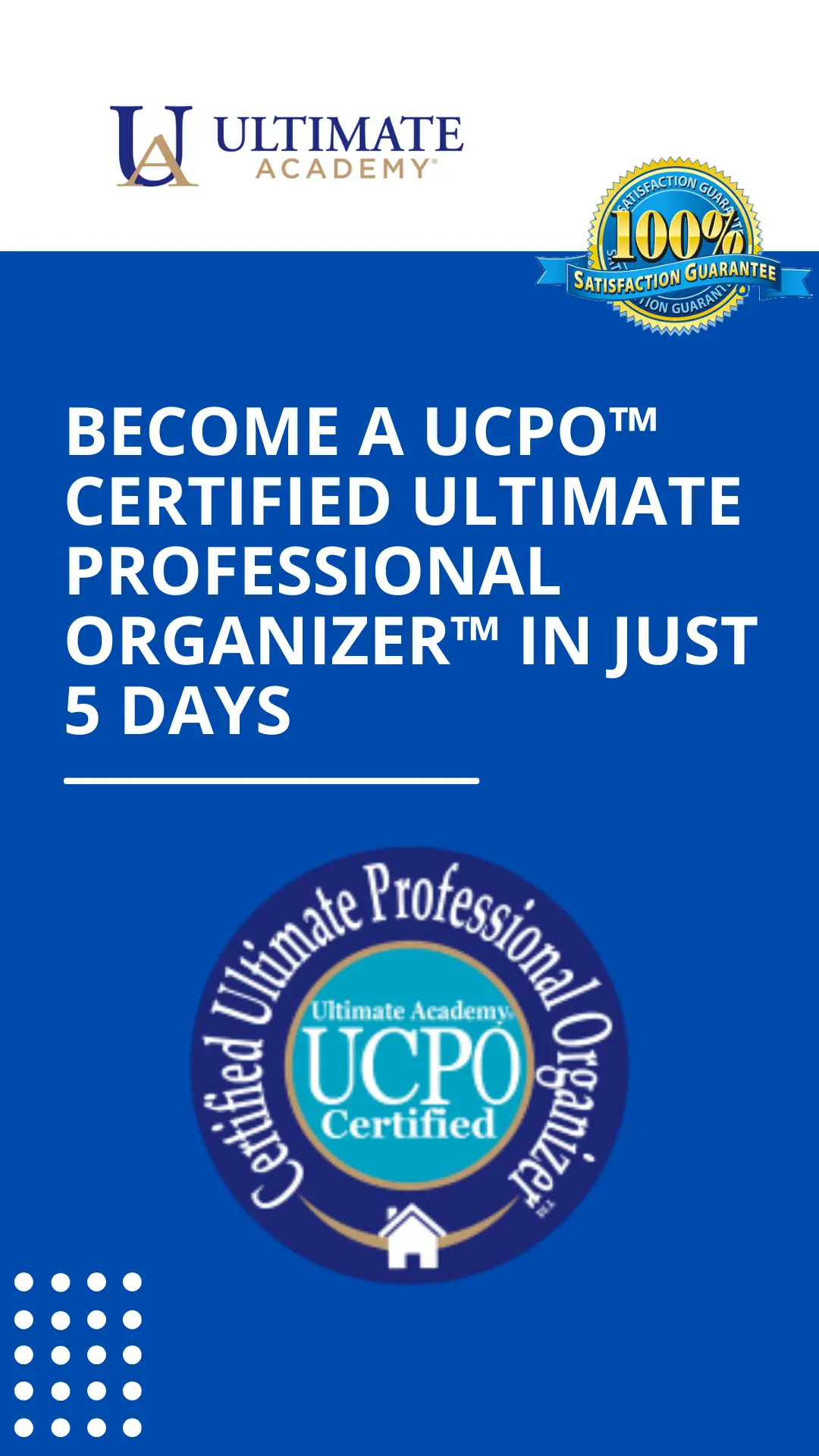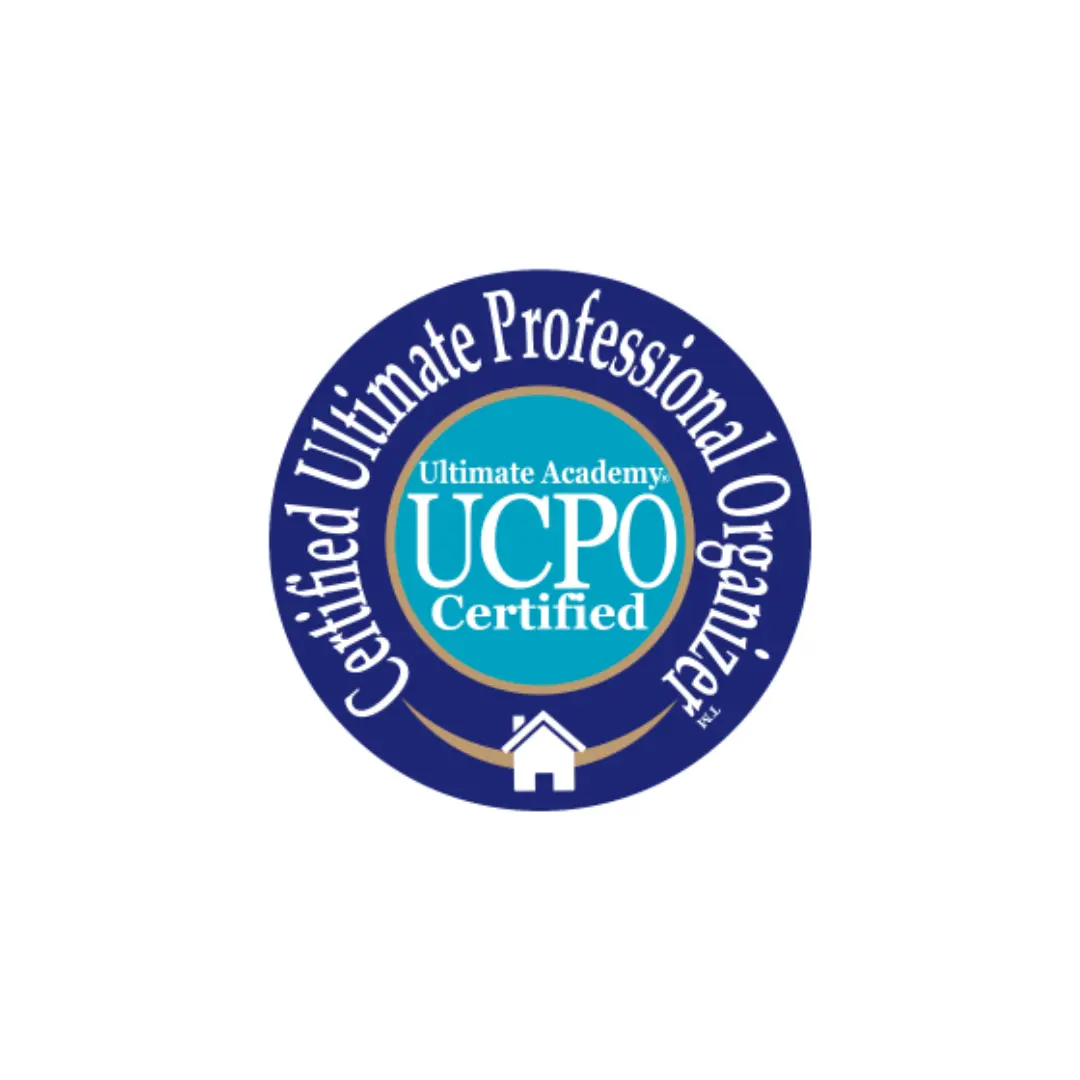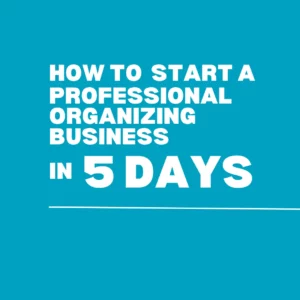How To Start An
Organizing Business?

Welcome to the world of professional organizing! Imagine turning cluttered spaces into organized havens and making a living from it. If you’ve been pondering how to start an organizing company, going a step further to figure out how to create a successful organizing company, or just figuring out the beginner basics of how to start an organizing business, then you’re in the right place.
Let’s dive into the essentials: recognizing valuable skills, exploring new career opportunities, gaining experience as an independent contractor, obtaining relevant training and certification, and more. This guide will be your roadmap to turning your organizational passion into a thriving business.
Table of contents
- Starting Your Professional Organizing Business
- Building Essential Skills for Your Organizing Business
- Professional Training and Certification in Organizing
- Establishing Your Client Base
- Marketing Your Organizing Business
- Ensuring Success and Growth of Your Organizing Business
- Navigating Challenges in the Organizing Industry
- Balancing Work and Personal Life as an Organizing Professional
- Additional Considerations for Aspiring Professional Organizers
- Conclusion
Starting Your Professional Organizing Business
Many aspiring professional organizers ponder how to start an organizing company, often asking, “How do I go about starting my own organizing business?” or “What steps should I follow to start a professional organizing business?” The answer, surprisingly, is straightforward.
The initial step towards starting your own organizing business involves pinpointing your mission statement. Consider this as the compass for your venture. It could capture sentiments like “Helping clients craft clutter-free spaces,” or “Guiding individuals towards organizational serenity.” Ensure it genuinely reflects what you aim for in your professional organizer journey.
Simultaneously, when setting up your organizing company, it’s crucial to define your ideal client profile. Recognizing those who’d gain the most from your services lets you target these specific clients in your online marketing and promotion.
How To Start An Organizing Business?
1. Research What Type of Organizing You Like To Do
Understand the market by researching the demand for organizing services in your area.
2. Obtain Reputable Training and Certification
Professional training and certification from Ultimate Academy® will provide you with instant credibility and a roadmap on how to successfully establish and operate your professional organizing business.
3. Create Your Brand and Marketing Strategy
Your branding should be a reflection of you and the type of company you want to appeal to your target audience. Utilizing resources such as VistaPrint and Canva can help you create professional and unique marketing materials!
4. Determine Your Target Audience
Identify your target clientele: homeowners, businesses, specific demographics, realtors and brokerages, etc.
5. Establish Pricing and Services
Create a list of services you would like to offer, keeping in mind what you enjoy doing and what is in demand.
6. Start Connecting With Potential Clients
Start getting the word out and connecting with others – being the ambassador of your company!
Understanding the Organizing Business Landscape
Want to start a professional organizing business but don’t know exactly where to start? Before diving into how to start an organizing business, it’s crucial to understand the market. An organizing business isn’t just about tidying up; it’s about creating systems that help individuals and businesses function more efficiently.
Whether you’re interested in starting your own organizing business, a cleaning and organizing business, or even a specialized closet organizing business, understanding your target audience and their needs is paramount.
Discover more insight into starting an organizing and cleaning company here.
Identifying Your Mission and Target Audience
So, how do you start an organizing business?
Starting an organizing business begins with self-reflection on your interests within the field. Ask yourself: What type of organization am I passionate about? Consider whether home-based organization, like closets and kitchens, appeals to you, or if you’re more interested in office setups or other organizing niches.
Once you have pinpointed your area of interest, use this to inform your mission statement and identify your target audience demographics—both are crucial for crafting a successful business plan. For example, if you find joy in helping small businesses organize their workspaces, then they might become a key part of your client base. This clarity in who you serve and how you want to impact them will lay a strong foundation for your professional organizer business.
A fact worth noting here is that research suggests starting a professional organizing business can be done with minimal costs. That’s encouraging news for anyone eager to take charge of their life by launching their very own profitable enterprise. With dedication coupled with real-life experiences applying practical solutions in various settings (be it homes or offices), your professional organizer business is destined for success.
Whether you’re planning to start a home organizing business, a closet organizing enterprise, or even contemplating starting a cleaning and organizing venture – remember that the first step begins with identifying your mission and target audience. Now let’s get started on this exciting journey.
How to Start a Professional Organizing Business? Build Essential Skills
As an aspiring business owner keen on learning how to start an organizing company, you must develop key skills to run a successful professional organizing service. These go beyond just arranging items neatly in boxes or closets, especially if you’re looking at starting a cleaning and organizing business.
What are the Initial Steps to take When Learning How to Start an Organizing Business?
The initial phase of learning how to start an organizing business should involve engaging in at-home practice. This allows you to refine your organizational skills and gather practical experience, which is essential in becoming proficient at residential organizing, space planning, and creating effective storage solutions. Practicing within your own space provides a hands-on learning experience that offers insights into client preferences and industry standards, which are invaluable as you build your business.
How Can I Advance My Career while Starting My Organizing Business?
As you delve into how to create a successful organizing business, consider looking for opportunities in underserved areas where there is demand but limited expertise. Specializing in specific areas of organization, such as paper management, can set you apart and significantly advance your career in the organizing industry. Offering unique services that cater to specific needs can help you establish a niche market for your business.
How to Create a Successful Organizing Business?
Starting an organizing business is about more than just tidying up spaces. With the right tools and resources, you can master essential skills like effectively scheduling appointments to juggle multiple clients daily.
While financial planning is beneficial, there are user-friendly tools and software that can simplify budgeting and ensure profitability. With the right support, even those new to marketing and accounting can thrive in this business.
For enhancing your online reach, tap into the power of social media. By sharing decluttering tips and impressive before-and-after photos, you can captivate and grow your audience.
Professional Training and Certification in Organizing
If you’re considering how to start an organizing business, laying a solid foundation with formal training can significantly boost your credibility. While natural talent is an asset, training programs, such as the one offered at Ultimate Academy®, provide a comprehensive curriculum that sharpens your skills further.
This Professional Organizing course dives deep into both theoretical and practical components of professional organizing. Students will be provided with extensive knowledge about different aspects of the organization business, such as space planning and efficient storage solutions, while also gaining hands-on experience in real-life scenarios.
Furthermore, these courses ensure you’re well-equipped not only with practical organizing skills but also with essential business insight. Topics encompass business, sales, and marketing components of professional organizing and entrepreneurship. Ultimate Academy® also emphasizes soft skills, such as communication, client relations management, project management principles, and ethical practices, which are all pivotal for business owners in the professional organizing sector.
Gaining Credibility through Certification
In addition to acquiring comprehensive knowledge in professional organizing, obtaining certification from a recognized institution is essential. This certification enhances your credibility, appealing to clients seeking professionals with verified expertise. Furthermore, it underscores your commitment to ongoing education, ensuring that you remain abreast of industry innovations, thus optimizing your service quality.
The Ultimate Academy® Advantage
Choosing to enroll with online learning companies, like Ultimate Academy®, can be advantageous for aspiring professional organizers and entrepreneurs. From educational opportunities and networking to personal guidance and ongoing support, Ultimate Academy® is aimed at supporting newcomers in the professional organizing industry.
Completing this certification could be a step forward in your career, providing you with the foundation to start your journey in the professional organizing business as a confident and competent professional organizer and entrepreneur.
Establishing Your Client Base
Building a strong client base is crucial for the success of your professional organizing business, especially if you’re pondering how to start an organizing business effectively. The key to an organizing business? Understanding and meeting the needs of potential clients.
Understanding Client Needs
Your capacity to comprehend the needs of potential clients is pivotal when considering how to create a successful organizing business. Clients require more than just a person who can tidy up; they’re seeking an expert who can assist them in streamlining their lives, crafting systems that function efficiently, and offering enduring solutions to clutter issues.
The tangible value of your organizing skills cannot be downplayed. In fact, formulating a robust business plan based on your capabilities and experiences is essential. This insight enables you to not only meet, but often exceed, the expectations of both potential and satisfied clients.
Apart from delivering exceptional service, sustaining effective communication with clients fosters trust—a foundational element for any fruitful business relationship. Actively inquiring about their requirements or addressing any concerns will highlight your commitment to understanding their unique needs. Connecting with potential clients on platforms like Facebook groups dedicated to personal development can further enrich these relationships.
Making Connections through Networking
When considering how to create a successful organizing business, networking is essential. Participate in local events or join online forums specifically related to organization—it could connect you with future loyal customers. Teaming up with other professionals, like interior designers or real estate agents—those who likely require organizing services frequently—can also be beneficial.
Joining your local Chamber of Commerce and other professional business organizations in your market can provide many networking opportunities and industry-specific resources. The National Association of Women Business Owners (NAWBO) and the National Association of Productivity & Organizing Professionals (NAPO) are just a couple of examples networking opportunities to connect with peers, potential clients and resources.
Satisfied clients serve as the most powerful promoters of your services. When clients are content with what you offer, they’re more inclined to endorse you to acquaintances and family, which then amplifies your organizing business’s potential for significant growth.

Marketing Your Organizing Business
Your business start in the organizing industry deserves the spotlight. And social media is your stage. It’s not just about making pretty posts, but it’s a platform to connect with potential clients, showcase your unique organizing skills, and bring business to your doorstep.
How to Start an Organizing Company with Social Media
Social media plays an integral role in promoting any modern business, more so for visual fields like professional organizing. Instagram, Facebook, or Pinterest can act as online portfolios where you display before-and-after shots of organized spaces. The transformation visuals work wonders in attracting a target audience’s attention.
In the early phases of your business start, you’ll find that startup costs can be minimized by effectively utilizing these free platforms. Besides displaying your expertise through pictures, use these platforms to share helpful tips on decluttering and organization. This will not only establish you as an authority in the field but also engage followers, creating a loyal base that trusts and values your advice. Join relevant groups, participate actively by answering frequently asked questions related to how to start an organizing business – this interaction builds trust.
In addition to organic reach via posts, consider using paid promotions targeted towards your ideal client demographic – think age group, location preference, etc., which helps gain visibility among those who are most likely to require your services.
A monthly round-up blog post linked back from emails showcasing recent projects or sharing some insider pro-organizing tips can help keep existing clients engaged while piquing interest among new subscribers too.
The key lies in consistency across all channels, be it maintaining a regular posting schedule or responding promptly to queries received via messages/comments/emails; ensuring prospective customers get the impression of a committed professional organizer behind their screens at all times.
Ensuring Success and Growth of Your Organizing Business
You’ve taken the plunge, and you’re exploring how to start an organizing business. But how do you ensure your business not only survives but thrives? Whether you’re considering how to start a home organizing business or how to start a closet organizing business (or both), building a strong foundation is key to making sure your professional organizing business succeeds.
Maintaining Quality Services
The quality of services provided is critical in ensuring the growth and sustainability of any business, especially in the organizing sector. It’s crucial to stay up-to-date with new trends and techniques in professional organizing, which can be vital if you’re looking into how to start a home organizing business or a specialized closet organizing venture.
Below are some examples of the latest trends and techniques in professional organizing:
Minimalist Movement: With the rise of minimalism, many clients are seeking ways to declutter their spaces and live with fewer possessions, focusing on quality over quantity.
Sustainable Organizing: Eco-friendly practices are being incorporated, such as repurposing items, recommending sustainable storage products, and emphasizing the reduction of waste.
Virtual Organizing: Especially relevant given the rise of remote work and the global pandemic, virtual organizing allows professionals to guide clients through decluttering and organizing processes via video calls.
KonMari Method: Popularized by Marie Kondo, this technique emphasizes keeping items that “spark joy” and has its unique way of folding and storing possessions.
Color-Coding: A visual technique where items are organized based on color, often used in closet organizing to make outfit selection more streamlined.
Custom Storage Solutions: Tailored storage solutions, especially for closets, where every inch is optimized based on the client’s specific needs.
Photo Documentation: Before-and-after photos not only serve as a promotional tool but also motivate clients to maintain organized spaces.
Capsule Wardrobes: For closet organizing, the idea of having a smaller collection of versatile clothing items that can be mixed and matched has become popular.
Specialized Kits: Curated boxes or kits for specific organizing tasks, like a “junk drawer” kit or a “pantry overhaul” kit.
Growth Through Diversification
Diversifying your services, especially when considering how to start an organizing company, allows you to tap into different market segments which can boost revenue streams. As you think about how to create a successful organizing company, you might find that offering related services like home staging or space planning could attract a diverse target audience who need more than just organization help.
Remember though, diversification should never compromise on quality – make sure each service offered aligns with your brand image and expertise level.
Promoting Your Brand Consistently
Having a robust business website is vital for those diving into how to start an organizing business. An effective marketing strategy goes beyond simply promoting yourself online; it includes establishing strong branding across all platforms – from social media posts to promotional materials – so potential customers instantly recognize your company’s brand wherever they see it.
Social Media: Regularly update profiles on relevant platforms such as Facebook or Instagram where most people spend their time nowadays.
Email Marketing: Utilize email newsletters that offer valuable content, updates on services, or discounts to subscribers.
Networking: Engage with other professional organizers and related industries for potential collaborations.
When it comes to growing your organizing business, remember that success isn’t something that happens instantly. It’s the small steps you take every day – like offering quality service, diversifying what you provide, staying consistent with your brand image, and networking effectively – these are what truly make a significant impact.
Navigating Challenges in the Organizing Industry
Starting an organizing business can be thrilling, but it’s not without its hurdles. As mentioned earlier, understanding how to start an organizing company goes beyond just having exemplary organizational skills. It’s about laying the groundwork for a successful professional organizing venture
Facing Financial Hurdles
A significant challenge when starting any successful business involves finances. You’ll need funds to get necessary training, secure vital aspects such as business insurance, including business liability coverage, design branding materials, create a professional website, and handle day-to-day expenses until revenue starts flowing in consistently.
Making Your Mark Online
In today’s digital age, having an online presence is crucial for any small business owner. As we noted before, social media posts can help boost visibility among potential clients while providing valuable content related to organization tips and tricks. But creating engaging social media content requires time and effort which could potentially distract from other important aspects of running your business.
Sustaining Motivation Amidst Setbacks
The road to figuring out how to start an organizing company may sometimes seem long as you strive every single day to establish yourself in this lucrative field. The journey from starting out to mastering how to create a successful organizing company requires patience – building credibility isn’t achieved overnight. Remember why you started organizing in the first place and let your passion fuel your determination to overcome these challenges.
Balancing Work and Personal Life as an Organizing Professional
Being a professional organizer is no small task. It requires not just exceptional organizing skills, but also time management capabilities to juggle client work and personal responsibilities. However, striking that perfect balance between your organizing career and family members isn’t impossible.
The key lies in setting clear boundaries right from the start of your business journey. This includes defining specific hours for work-related tasks like space planning or storage solutions designing for clients, while keeping aside dedicated ‘me’ time or moments with loved ones.
In addition to this, incorporating some real-life practices can help you stay on top of both worlds without feeling overwhelmed. For instance, use productivity tools such as digital calendars or project management apps to plan out each single day effectively – including breaks.
Scheduling Time Blocks
Scheduling blocks of uninterrupted time specifically for different activities throughout the day will allow you focus better at what’s at hand – be it creating social media posts promoting your online business or spending quality time with family.
This practice doesn’t just improve productivity but also helps reduce burnout by ensuring that you’re not always ‘on’. After all, being an entrepreneur does mean flexibility over when you choose to work.
Maintaining Healthy Boundaries
Setting boundaries extends beyond merely managing schedules; it involves communicating these limits clearly too – especially if working from home. So whether it’s setting up a designated workspace where interruptions are limited during active hours or informing clients about response times outside office hours – make sure those lines don’t blur.
Healthy boundaries are crucial, not only maintaining sanity amidst the hustle but also ensuring that you give your best in both personal and professional domains.
Finding a balance that allows for success in all aspects of life without the feeling of being constantly overwhelmed is essential. So embrace flexibility, set boundaries and prioritize self-care to truly make your organizing career a rewarding journey.
Additional Considerations for Aspiring Professional Organizers
Profitability of Organizing Businesses
The professional organizing industry has seen a surge in interest over the past few years, making it a potentially profitable venture. While the innate ability to declutter and organize is advantageous, the success of your organizing business relies heavily on your understanding of the target market. Identifying the specific needs and preferences of your ideal clients, and tailoring your services to meet those requirements, can give you a competitive edge. Further, strategically setting your prices ensures you’re providing value while also generating a profit.
For guidance on this crucial aspect, to learn how to price your organizing services, click here.
Determining Your Organizing Rates
The art of setting the right price for your organizing services lies in understanding the market dynamics and recognizing your unique value proposition. Rates in the organizing industry are influenced by several factors:
Skills and Expertise: As with many professions, the more advanced your skills and the broader your expertise, the higher the rates you can command. This can be achieved through continuous professional organizer training, attending workshops, and obtaining certifications from reputable institutions like Ultimate Academy®.
Reputation: Building a robust portfolio and gathering positive testimonials and reviews can significantly elevate your standing in the market, allowing you to charge premium rates.
Geographical Location: Organizing services might be priced differently in a bustling city compared to a smaller town. Understand the local demand and competition to set appropriate rates.
Project Complexity: Not all organizing tasks are created equal. A large-scale decluttering and organizing project for a corporate office will likely command a higher rate than organizing a small bedroom closet.
Earning Potential in Organizing
The professional organizing industry offers substantial earning potential. Specialists who have honed their skills and developed a niche often find themselves in high demand. For instance, those specializing in office organization might be sought after by businesses aiming to boost productivity through efficient workspaces. Similarly, organizers focusing on home decluttering might find a steady stream of clients, especially with the rise of minimalistic living trends. Remember, it’s not just about sorting and storing items; it’s about creating systems, offering solutions, and enhancing clients’ overall quality of life. As you continue to expand your services, upskill, and build a strong reputation, the sky’s the limit for your earning potential in this industry.
Conclusion
Beginning a personal organization enterprise could seem intimidating, but with the proper outlook and attitude, diving into how to start an organizing company can be an energizing experience. For those aiming higher, figuring out how to create a successful organizing company is the next big leap.
The steps are clear – define your mission, know who you’re helping out, craft that all-important business plan.
Hone essential skills not just in organizing but also in project management and marketing. Keep learning; take advantage of professional training programs to boost credibility.
Don’t forget the importance of building relationships with clients and making use of social media for promotion. And remember – balance is key to long-term success.
No matter how big or small your goal is on how to start an organizing business, armed with these insights and resources, you’re ready to conquer. In fact, if you want to learn how to start an organizing business in 5 days, click here.

Learn About our Professional Organizing Certification


Similar Articles










